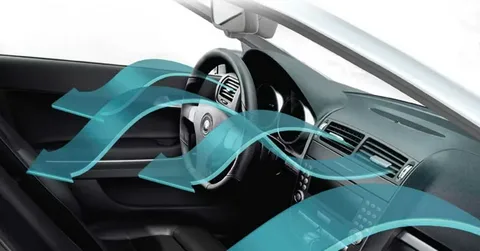
Unlock growth potential with industry expertise. Request your market sample report:
Key Takeaways from this Market:
- The automotive cabin air quality sensors industry in the United Kingdom is anticipated to rise, exhibiting a CAGR of 10.4% through 2033.
- The United States held a 21.6% share of the global automotive cabin air quality sensors industry in 2022.
- With a CAGR of 13.5% over the forecast period, India is predicted to develop rapidly in the automotive cabin air quality sensors industry.
- In 2022, Japan had an 8.5% share of the automotive cabin air quality sensors industry.
- China’s automotive cabin air quality sensors industry is expected to flourish speedily, registering a CAGR of 14.0% over the forecast period.
- Germany accounted for 7.9% of the global automotive cabin air quality sensors industry in 2022.
Competitive Landscape:
In the ever-evolving landscape of automotive cabin air quality sensors, leading players are ardently dedicated to pushing the boundaries of sensor technology. The goal is to enhance air quality inside vehicles. These players strive to improve sensor accuracy, durability, and sensitivity. Research and development efforts are underway to integrate real-time monitoring and air purification systems. Smart connectivity options are also being explored. Collaboration with automotive manufacturers is vital to ensure seamless sensor integration. Ultimately, the well-being and comfort of passengers remain paramount in these endeavors.
Key Players
- Amphenol Corporation
- Sensirion AG Switzerland
- Paragon AG
- Valeo
- Sensata Technologies, Inc.
- Honeywell International Inc.
- ams AG
- OMRON Corporation
- Figaro Engineering Inc.
- Prodrive Technologies
- UST Umweltsensortechnik GmbH
- Chemisense Inc
- Others
Recent Developments:
In a significant breakthrough, Sensirion unveiled its latest development in June 2023. It has successfully integrated its cutting-edge air quality sensors with the prestigious RESET Air Standard. This remarkable integration serves a vital purpose by streamlining the accreditation procedure for indoor air quality monitors.
Figaro Engineering Inc. introduced the FECS series in May 2021. This groundbreaking series showcases three-electrode electrochemical gas sensors. Not only do these sensors exhibit extraordinary resilience to interference gases, but they also boast an innovative leak-proof design.
Key Segmentation of the Market:
By Vehicle Type:
- Passenger Cars
- Commercial Vehicles
By Sales Channel Type:
- OEM
- Aftermarket
By Region:
- North America
- Latin America
- Western Europe
- Eastern Europe
- East Asia and Pacific
- Middle East and Africa
About Future Market Insights (FMI)
Future Market Insights, Inc. (ESOMAR certified, recipient of the Stevie Award, and a member of the Greater New York Chamber of Commerce) offers profound insights into the driving factors that are boosting demand in the market. FMI stands as the leading global provider of market intelligence, advisory services, consulting, and events for the Packaging, Food and Beverage, Consumer, Technology, Healthcare, Industrial, and Chemicals markets. With a vast team of over 400 analysts worldwide, FMI provides global, regional, and local expertise on diverse domains and industry trends across more than 110 countries.
Contact Us:
Future Market Insights Inc.
Christiana Corporate, 200 Continental Drive,
Suite 401, Newark, Delaware – 19713, USA
T: +1-347-918-3531
For Sales Enquiries: sales@futuremarketinsights.com
Website: https://www.futuremarketinsights.com
LinkedIn| Twitter| Blogs | YouTube

